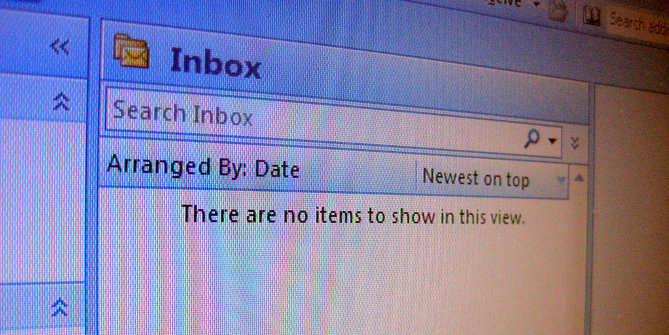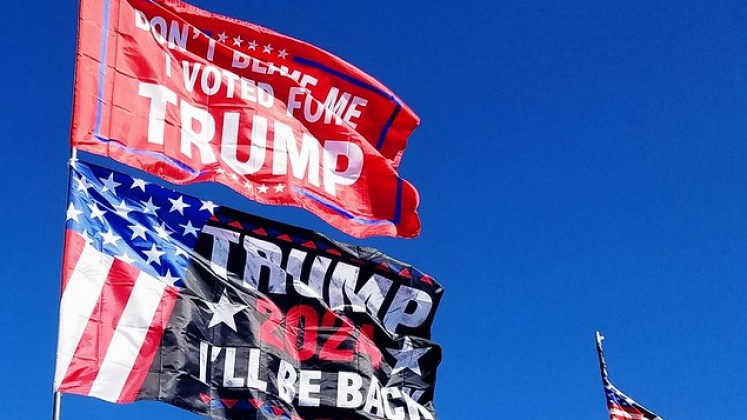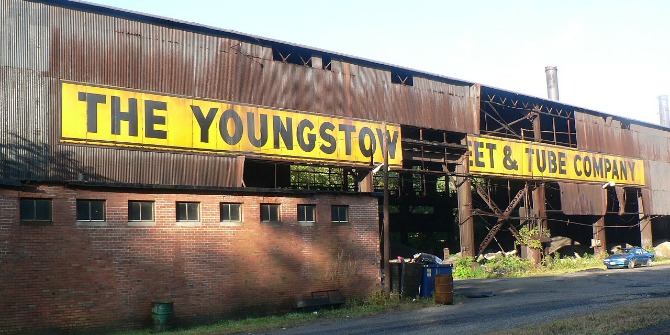 Despite Democrats becoming more liberal in recent decades, they are often very reluctant to describe themselves as such. In new research analyzing the contents of candidates’ televised political advertising Jacob Neiheisel investigates the effectiveness of whether or not calling a Democrat a ‘liberal’ reduces voters’ support for them. He finds that in presidential elections, such anti-liberal rhetoric has no effect, but those running for the US Senate are unable to escape the negative trappings associated with the liberal label.
Despite Democrats becoming more liberal in recent decades, they are often very reluctant to describe themselves as such. In new research analyzing the contents of candidates’ televised political advertising Jacob Neiheisel investigates the effectiveness of whether or not calling a Democrat a ‘liberal’ reduces voters’ support for them. He finds that in presidential elections, such anti-liberal rhetoric has no effect, but those running for the US Senate are unable to escape the negative trappings associated with the liberal label.
Politics has grown more polarized in the United States over the past several decades. Whether driven by elites in government or by the demands of the masses, one thing is clear: Democrats at all levels have become more consistently liberal in their policy views while Republicans have moved in a more conservative direction on matters of public policy. This relationship holds across a host of different social and political issues.
When it comes to how Americans describe themselves in ideological terms, though, the polarization of the electorate has been uneven. Republicans adopted the conservative label with some alacrity. Democrats, for their part, have long been reluctant to hew to the liberal label. This asymmetry in self-labeling behavior has been linked with Republican efforts to make “liberal” a dirty word in American political discourse. Media commentators have also credited the “L word” strategy with contributing to the defeat of Democratic presidential hopefuls, and there was much speculation in 2004 about whether being tarred with the liberal label hurt John Kerry at the polls.
In spite of such widespread speculation, little attention has been paid to whether anti-liberal rhetoric is responsible for Democrats’ apparent reluctance to identify with the label or whether the negative trappings that are now thought to be associated with being called a liberal have hurt Democratic candidates. Noting this disconnect between media coverage of anti-liberal rhetoric, and the almost complete lack of evidence regarding its potential effects on both self-identified ideology and support for Democratic candidates, I conducted a study to help figure out whether anti-liberal is an effective electoral tactic.
My study employed information on the content of candidates’ televised political advertising in 2004 from the Wisconsin Advertising Project (now the Wesleyan Media Project). The Ads Project coded each unique advertisement aired in the largest 100 media markets in the United States in 2004 for a myriad of different items. Crucially, the coders who viewed each ad were asked to determine whether an ad described the favored candidate or the opposing candidate as a liberal. Coupled with information on how many times each such ad was aired, this coding makes it possible to construct a measure of candidates’ use of anti-liberal rhetoric.
The “supply side” of anti-liberal ads—how candidates used the liberal label on the campaign trail—is only part of the equation, however. Those who never watched TV during the election season, or watched programs that candidates did not target with their advertisements, could not possibly have been influenced by campaign ads featuring anti-liberal rhetoric. In constructing a measure of exposure to anti-liberal campaign ads, then, I paired the above-described data from the Wisconsin Advertising Project with a survey that asked what kinds of TV shows those responding to the survey watched. These survey data provide the second piece of information that is required to create a measure of exposure to anti-liberal campaign rhetoric, and I use ad data, weighted by survey respondents’ television watching habits, to study the effects of Republicans’ use of the “L word” strategy.
Ideally we would want to know whether changes in exposure to anti-liberal rhetoric track with changes in Democrats’ willingness to self-identify as a liberal or changes in voters’ support for Democratic candidates. Doing so requires panel data—information on the same individuals surveyed at multiple points in time. The dataset that I employed therefore not only includes good measures of TV-watching habits, but also asked questions about ideology and candidate support at different times during the 2004 campaign.

With these tools in hand I used a series of statistical models to see whether increases in exposure to anti-liberal campaign rhetoric track with changes in Democrats’ willingness to identify as liberals or whether being associated with the word in a negative manner hurt Democratic candidates in their quest for elected office.
I found little evidence to suggest that exposure to campaign ads portraying the word “liberal” in a negative light have any impact at all on changes in Democrats’ willingness to identify as such. In the short term, then, Republicans’ use of the term as an epithet on the campaign trail is not to blame for the continued existence of conservative Democrats in an era of intense partisan polarization that has seen Republicans and Democrats dividing on everything from the kinds of media they tune into to the brands of products that they buy. It is quite possible, however, that anti-liberal rhetoric had already done damage to the liberal “brand name” by the time that the data for my study were collected, and that the cumulative effect of Republican efforts at disparaging the label—efforts that started with Barry Goldwater in 1964—was to discourage its use among members of the electorate to describe their own politics.
But what of the more immediate effects of exposure to anti-liberal campaign ads on voters’ evaluations of (and willingness to vote for) Democratic candidates? Recall that numerous media commentators believed that the “L word” strategy might have some legs in 2004. That contest famously saw Republicans attempt to paint the Democratic nominee—then-Senator John Kerry (D-MA)—as a Massachusetts liberal who was out of touch with the American heartland. Were Americans swayed by such rhetoric?
Again, my analysis suggests otherwise. I find no evidence that exposure to advertisements connecting John Kerry with the liberal label affected individuals’ evaluations of him or influenced their propensity to say that they would vote for him in the general election. This is true even after controlling for exposure to all negative ads about Kerry. Potential voters are constantly being bombarded with information about the parties’ respective nominees during presidential elections, and the labels that are applied to the different candidates are only one of many possible considerations that the electorate could use in deciding which candidate to support at the polls. Although imbued with all sorts of (primarily negative) meaning, the liberal label may not provide that much information to voters who also possess the necessary information to consider the candidates’ stances on the issues, their records of public service, and even their appearance on the stump.
I do find, however, that candidates running for the US Senate were unable to escape the negative trappings associated with the liberal label. Increases in exposure to campaign ads featuring anti-liberal rhetoric were associated with decreases in evaluations of, and decreases in the likelihood of supporting, the Democratic senate candidate. Ads associating Democrats with the liberal label also influenced the electorate’s vote choice in races for the US Senate—pointing them in a more pro-Republican direction.
At least for some Democratic candidates, it seems, Republican efforts at employing the “L word” strategy can be detrimental. And while down-ballot Democrats might be able to run from the liberal label, carefully avoiding its use in their own campaign rhetoric, they are limited in their ability to hide from it. Republicans, all too eager to paint their opponent with the negative images conjured up by the word, have done much to strategically employ the liberal label in electoral contests since at least the mid-1960s. My work provides evidence that such efforts have enjoyed some measure of success.
Featured image credit: Billy Hathorn (Own work) [CC BY-SA 3.0 or GFDL, via Wikimedia Commons.
This article is based on the paper, ‘The “L” Word’’, in Political Research Quarterly.
Please read our comments policy before commenting.
Note: This article gives the views of the author, and not the position of USAPP– American Politics and Policy, nor of the London School of Economics.
Shortened URL for this post: http://bit.ly/2cvEZKM
_________________________________
 Jacob Neiheisel – University at Buffalo
Jacob Neiheisel – University at Buffalo
Jacob Neiheisel is an assistant professor of political science at the University at Buffalo, State University of New York. His research interests include: religion and politics, political communication, electoral behavior, political parties and election administration. His work has been published in such outlets as Legislative Studies Quarterly, Political Research Quarterly, American Politics Research, and Political Communication. He is also an occasional contributor to FiveThirtyEight.






